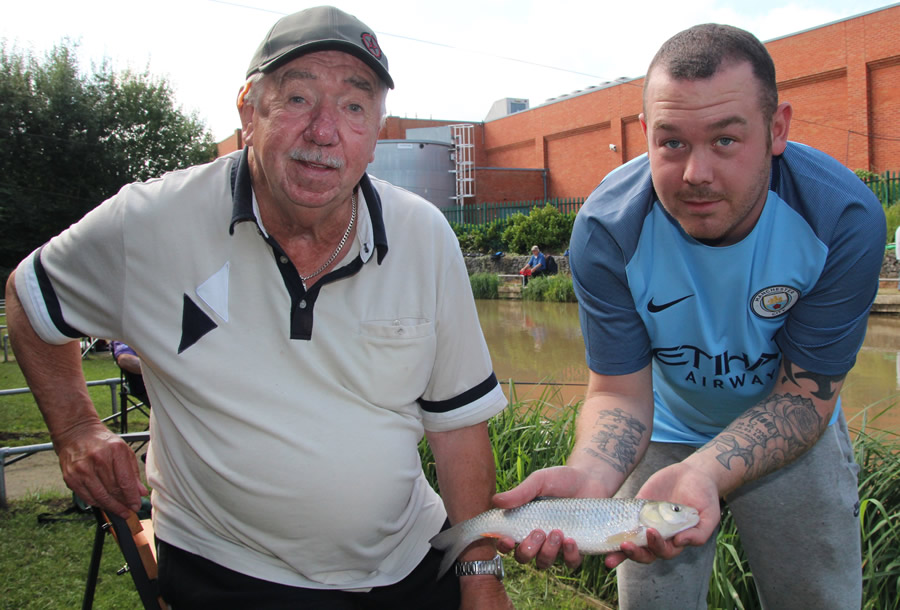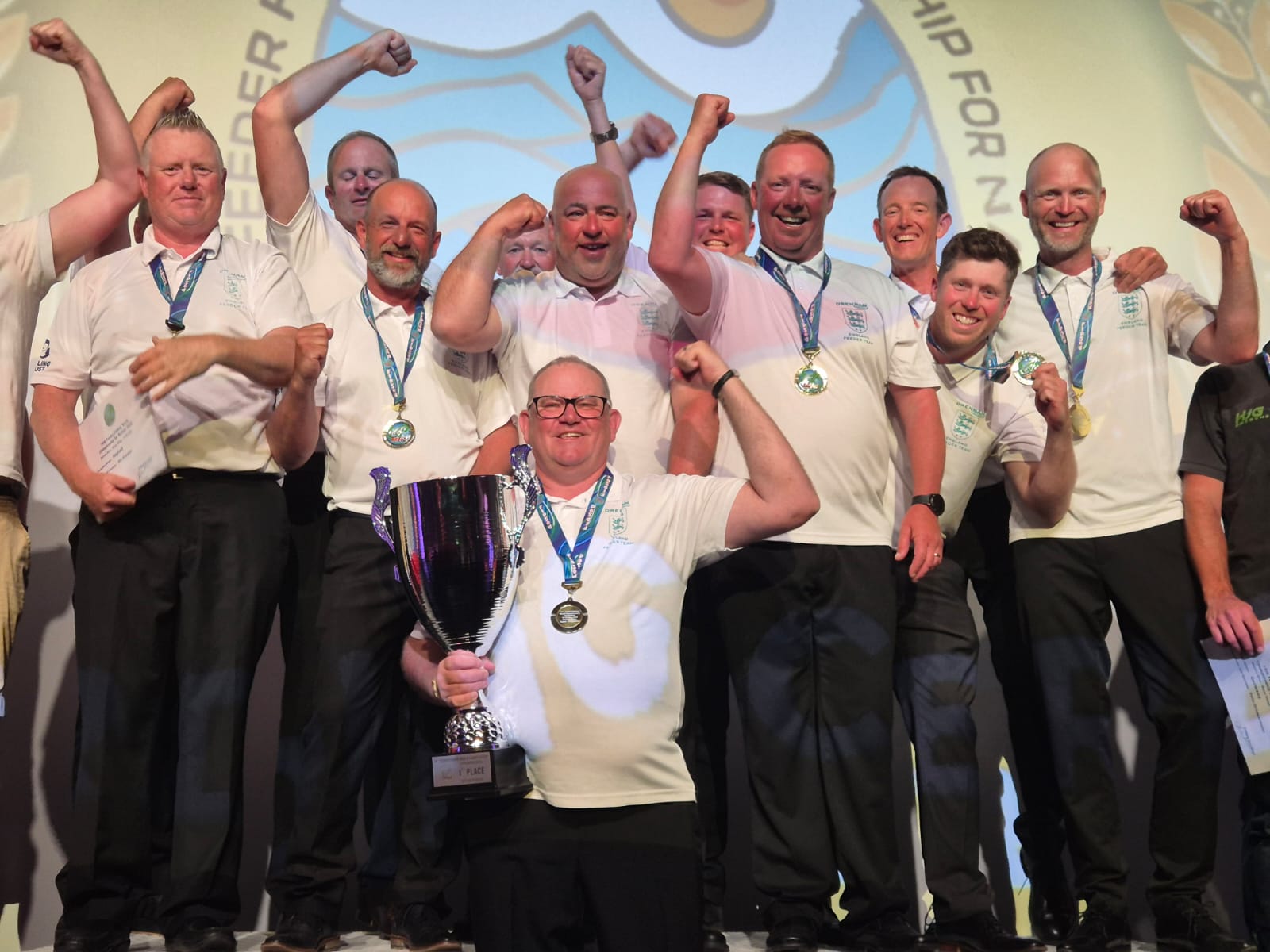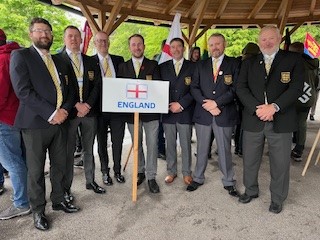
Get Fishing Resources
The Activity Trap: Report shows disabled people fear losing benefits by exercising
The Activity Trap: New research shows almost half of disabled people fear losing benefits if they take part in exercise
Almost half of disabled people (47%) fear losing their benefits if they are seen to be physically active, according to new research published by Activity Alliance in its report ‘The Activity Trap‘.
The research is important as disabled people count for one in five of Britain’s population, almost 14 million people, however, they are currently the least active group and twice as likely as non-disabled people to be inactive. Four in five disabled people would like to be more active (83%) to manage impairments, pain, and to maintain and improve physical and mental health.
Almost two thirds (65%) of disabled people who took part in the study said they rely on benefits to be active. Without them they would not be able to afford travel, paid-for exercise and specialist equipment. However, almost half of those who responded (48%) fear being viewed as “too independent” which could see them lose benefits like Personal Independence Payment (PIP), Disability Living Allowance (DLA) and Employment and Support Allowance (ESA).
Clive Copeland, Head of Participation at the Angling Trust said: “The Angling Trust is committed to improving opportunities for people to learn about and go fishing whatever their physical and mental health and well-being. A survey of anglers which we’ve just carried out in September 2018, has provided fresh new insight to help work out how many people who go fishing are influenced by health or disability, how this can affect their activity and what can be done to provide support. 37% of our 9,000+ angling respondents told us they have a long-standing limiting illness or disability. That’s shows that a very significant number of our core-market will be affected by the issues described in “The Activity Trap“. We welcome the timing and findings of this important piece of research and will use its numbers to help form our approach and the service we offer to disabled anglers. Nobody should fear being financially penalised for getting outdoors and active by the waterside if going fishing contributes to their health and well-being.”
Andy Dalby-Welsh, Deputy Chief Executive of Activity Alliance said: “Disabled people deserve the same right to be active as everybody else, no matter whether they want to make use of their local gym or become an elite athlete. We would urge policy makers within national and local Government to take on board the calls for action within this report and the spirit with which it was written. Let’s enable more disabled people to lead happier and healthier lives.”
Alan Ringland, chairman of the Birmingham Ability Counts League (the largest league of disabled footballers in England) said they had 455 players three years ago but now only have only 250. Many had dropped out because they lost benefits after PIP assessment. Alan said: “Playing football on a Sunday was one day where they really enjoyed themselves and if they don’t take part anymore they can lose confidence, friendships, and the camaraderie that goes with that. In many cases, sport is the only regular social activity in their lives and taking that away can have a massive impact.”

Disabled people can find out more about the benefits of being active,
who to contact and ideas on where and how to get started
on the Activity Alliance website – www.activityalliance.org.uk/get-active
To download a copy of the report go to www.activityalliance.org.uk/activity-trap
–ENDS–
Notes to Editors:
For more information or images please contact Chris Walker at Social Communications on chrisw@social-communications.co.uk or 07852 568625
For further information on Activity Alliance, please contact: Sarah Brown-Fraser Marketing and Communications Manager. Email sarah@activityalliance.org.uk or call 07764 291 671.
About The Activity Trap report
A study commissioned by the Dwarf Sports Association UK (DSAuk) and undertaken by FlexMR.
In this study, ‘benefits’ refers to both disability and health-related state benefits and other forms of government and NHS financial support. From 26 June to 17 July 2017, FlexMR undertook an online quantitative survey of 206 disabled people, primarily with physical impairments (89%), recruited through DSAuk, WheelPower, Cerebral Palsy Sport and Activity Alliance channels. Participants were either currently (96%) or previously (4%) in receipt of disability benefits and the survey was designed to secure some basic information about their activity levels and experience of benefits. 26 of these participants with physical impairments were recruited for a second, qualitative section of the study which ran from 24 July to 2 August. They answered questions about their experiences of disability benefits and physical activity in an online private ‘diary’ section and a question board in which answers were visible to other participants.
The study shows that four in five disabled people would like to be more active (83%). Respondents’ reasons include that it enables them to manage impairments, pain, and to maintain and improve physical and mental health.
About Activity Alliance
Activity Alliance is the operating name for the English Federation of Disability Sport (EFDS). We bring organisations and disabled people together to make active lives possible. Collectively, it continues to challenge perceptions and change the reality of disability, inclusion and sport. Activity Alliance receives funding from Sport England as its expert partner for disabled people in sport. www.activityalliance.org.uk
About the Angling Trust
The Angling Trust is the national representative and governing body for angling in England. Its ‘Get Fishing’ campaign are funded by the Environment Agency to provide more opportunities for people to go fishing and encourage sales of fishing licences. Get Fishing events have helped thousands of people discover the wonders of angling. There are hundreds of free fishing lessons and events at Get Fishing Near You.
You might also like

What to do if fish are gasping or spawning.…

WORLD CHAMPS GOLD FIRMLY IN THE SIGHTS OF ENGLAND…

We Fish as One supports Pride Month 2025

Sunglasses giant backs Angling Trust

Join in with the Check, Clean, Dry campaign this…

From TikTok to the classroom – Orchard School follows…

DRENNAN ENGLAND FEEDER TEAM WIN WORLD CHAMPS!

Family fishing at Aston Park Fisheries where have a…

FOURTEEN SIDES ALREADY THROUGH TO SUPERCUP ROUND 2!

SIXTH FOR ENGLAND AT FLY WORLD CHAMPS

Much needed new European Management Plan for Cormorants moves…

A Turning Tide: Why Ending Bottom Trawling in MPAs…

What to do if fish are gasping or spawning.…

WORLD CHAMPS GOLD FIRMLY IN THE SIGHTS OF ENGLAND…

We Fish as One supports Pride Month 2025

Sunglasses giant backs Angling Trust

Join in with the Check, Clean, Dry campaign this…

From TikTok to the classroom – Orchard School follows…

DRENNAN ENGLAND FEEDER TEAM WIN WORLD CHAMPS!

Family fishing at Aston Park Fisheries where have a…

FOURTEEN SIDES ALREADY THROUGH TO SUPERCUP ROUND 2!

SIXTH FOR ENGLAND AT FLY WORLD CHAMPS

Much needed new European Management Plan for Cormorants moves…

A Turning Tide: Why Ending Bottom Trawling in MPAs…

What to do if fish are gasping or spawning.…

WORLD CHAMPS GOLD FIRMLY IN THE SIGHTS OF ENGLAND…

We Fish as One supports Pride Month 2025

Sunglasses giant backs Angling Trust

Join in with the Check, Clean, Dry campaign this…

From TikTok to the classroom – Orchard School follows…

DRENNAN ENGLAND FEEDER TEAM WIN WORLD CHAMPS!

Family fishing at Aston Park Fisheries where have a…

FOURTEEN SIDES ALREADY THROUGH TO SUPERCUP ROUND 2!

SIXTH FOR ENGLAND AT FLY WORLD CHAMPS

Much needed new European Management Plan for Cormorants moves…









